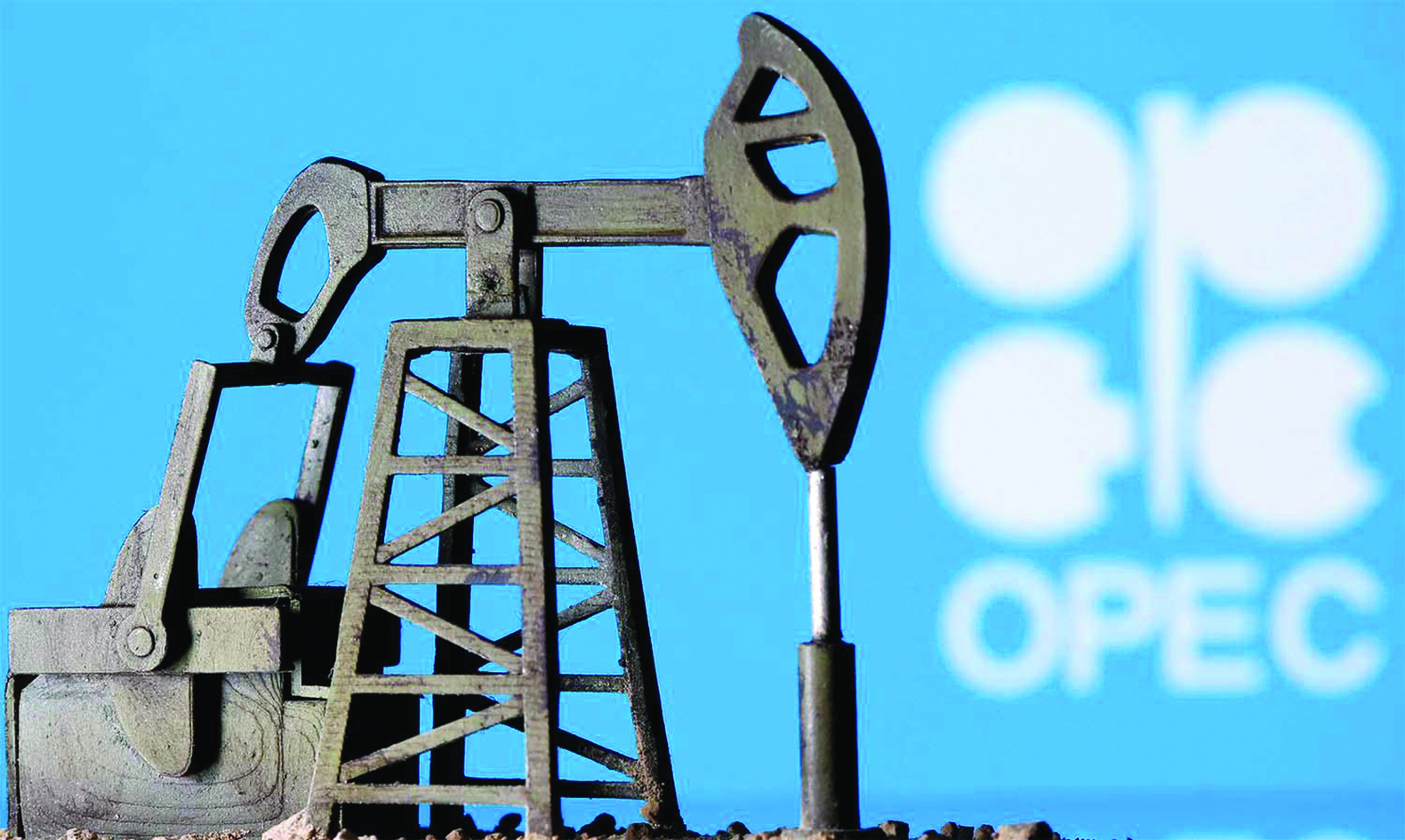 Despite different opinions on how to manage fallout from the crisis, OPEC+ has been able to unite around a very cautious policy of slow increase in capacity based on "Saudi prudence."
Despite different opinions on how to manage fallout from the crisis, OPEC+ has been able to unite around a very cautious policy of slow increase in capacity based on "Saudi prudence."
LONDON: The OPEC+ grouping of oil producers will hold its third ministerial summit of the year via videoconference tomorrow to discuss output cuts in the face of fresh price volatility. "The expectation is that the group will hold production steady also in May given current physical oil market weakness," according to Bjarne Schieldrop, analyst at SEB.
However, he added that "Russia and Kazakhstan are likely to lift production yet another notch and the group in total is probably fine with that." The OPEC cartel's largest producer is Saudi Arabia but the OPEC+ grouping also includes Russia, which produces even more crude oil.
Under its current agreement the OPEC+ group is enforcing a drastic output cut, meaning seven million barrels that could be shipped to markets every day are being left in the ground. The aim has been to avoid oversupplying a market suffering from a collapse in demand due to the coronavirus pandemic.
Without the production cuts, limited storage capacity could be saturated and the danger of a fall in prices-currently hovering around $60 per barrel-is real. Indeed, the two benchmark contracts, American WTI and Europe's Brent, have undergone a drastic price correction in recent weeks and have been subjected to fresh price instability over the last few days, a sign of serious market tension.
Vaccine 'chaos'
At the beginning of the year the arrival of effective coronavirus vaccines had led to hopes that widespread lockdowns, and with them the collapse in demand that has been a nightmare for the cartel, might soon be over. But then came the third wave surge in Europe and the spread of the virus in key crude consumer markets such as India and Brazil.
"Oil demand trends are not only pressured by renewed lockdowns on the (European) continent but also chaos with its vaccination program," said Stephen Brennock, analyst at PVM. The International Energy Agency (IEA) reflected this more downbeat outlook in forecasts contained in its last report this month. It estimated that global demand could take another two years to get back to its pre-crisis levels.
Saudi 'prudence'
Despite different opinions on how to manage fallout from the crisis, OPEC+ has been able to unite around a very cautious policy of slow increase in capacity based on "prudence", a watchword of Saudi Energy Minister Prince Abdulaziz bin Salman. To help smaller producers, Saudi Arabia agreed to reduce its own output by an extra million barrels per day (bpd) in February, March and April. However this cut "was never going to last forever and traders are now getting increasingly worried that the kingdom will not hold on to it for much longer" says Louise Dickson of Rystad. As such Riyadh's moves at this week's meeting will be especially keenly watched.
Faced with a constantly shifting market, the OPEC+ states have agreed to an almost monthly rhythm of meetings to thrash out policy for the month to follow, rather than the twice-yearly meetings which were the norm before the pandemic. Once again the thorny subject of respect for production cut quotas will be hanging over the meeting, as well the issue of the three producers who have thus far been exempted from cuts-Venezuela, Libya and Iran. Today, the group will hold preliminary discussions in the form of its Joint Ministerial Monitoring Committee (JMMC), which is tasked with overseeing implementation of agreements. - AFP
.jpg)
